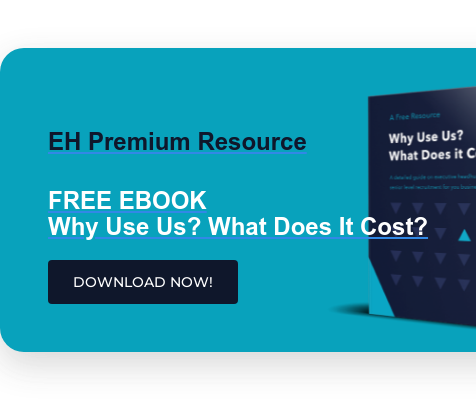Recruiting for the leader of your business is no simple task and it’s vital to make sure the person you appoint is the best possible person for the job. After all, a great Managing Director can make the difference between growth or stagnation, success or failure. So how can you identify the best Managing Director candidates through the recruitment process?
Pre-interview stages
For such a senior role, it is always advisable to engage with a headhunter to ensure a thorough search of the market is undertaken. Identifying those passive candidates who are happy in their current role but would still be open to a new opportunity is vital. Relying on a standard recruitment agency or just advertising the role directly is only ever likely to attract those candidates who are actively looking for a new role which will omit some of the best performing Managing Directors in the market.
By engaging with a good headhunter, they should undertake all of the hard work for you. This will include a rigorous research process that identifies all of the most suitable candidates for your Managing Director role – not just the actively looking ones.
In addition, they should undertake an in-depth screening and interview process including a psychometric assessment. This ensures that you are only spending time on reviewing a refined list of top quality candidates for the face-to-face interview stage.
The Interview(s)
When it comes to the interview with you (or more likely, interviews), this is the critical point to really identify who the best and most outstanding candidate is for the Managing Director role.
Hopefully, if your headhunter has done their job properly, you’ll have the luxury of having more than one top quality candidate to choose from.
Up until this stage, all you’ll have is a profile and CV of each candidate with a summary of how they have performed through the initial screening and psychometric profiling stages. So a face-to-face interview provides a great opportunity to get to know the individual a lot more.
Getting a feel for the individual’s personality is one of the key aspects to obtain from the interview but it’s also the opportunity to really probe that individual’s background and experience to make sure they’re going to be a good fit.
Multiple Interview Stages
To ascertain the best candidate for the role, it is recommended you undertake more than one interview stage. This will help ensure you don’t try and fit everything into one interview which can lead to a rushed session as well as running the risk of bombarding and overloading the candidate with questions.
For a Managing Director position, you need to be as thorough as possible at the interview stage.
For multiple interview stages, each interview should be structured differently to optimise the outcome. For example, the first interview may be more informal and focus on a candidate’s personality and overall background, whilst a second interview may focus more on the candidate’s demonstrable skills and experience.
Incorporating a presentation or tasks to be completed into the interview is also recommended as these help demonstrate a candidate’s communication and problem-solving skills in a pressurised environment.

Best interview questions for a Managing Director
So what questions should you ask in order to make sure they will be a fit-for-purpose Managing Director for your business? After all, you’ll only have a limited amount of time to delve into each candidate’s experience, so it’s critical to choose the right questions.
There is no definitive list of questions for a Managing Director as every role will be unique. However, we’ve identified the top ten interview questions that will extract the key information for a Managing Director job, along with what to expect from the answer to each question.
1 – What makes you different and really stand out from the crowd?
It’s vital your Managing Director will make an impact. This is one of the most important questions for any leadership role in a business. An ability to stand out is crucial for great leaders.
It’s also a great question to help you differentiate between candidates and see how they sell themselves. To have got as far as an interview with you means they are all likely to be strong suitable candidates, so what they identify as their key strengths can provide a helpful insight to their character and personality.
In particular, you should probe how the candidate would apply these strengths to the Managing Director role. Why does the candidate think these skills are relevant and what practical applications would they have in the role?
2 – What has been your biggest achievement from a leadership perspective?
Not all candidates may be a Managing Director already, and your role may represent a step up in their career. Therefore, it’s important to understand what they have done from a leadership perspective, regardless of whether it has been as a Managing Director, or other senior level role.
Your candidate’s biggest achievement should tell you the pinnacle of what they did in their last business, and give you an idea of what they can do in yours given your resources.
Understanding their biggest achievement will also help to qualify how the candidate defines success. Additional probing here should include:
- Why they see this achievement as their best one? Again, this will help understand how a candidate defines success and provide an insight into their motivations and goals.
- How they achieved it? How they achieve a success can be just as important as the success itself.
- What was their specific role/involvement/contribution to this success?
- Whether there is anything they would do differently?
- Could they have made it even more successful and if so how?
An ability to articulate success is really important in leadership and the examples given offer demonstrable proof of what a candidate is capable of and what achievements they could deliver for your business.
3 – What is your greatest technical strength?
This question is key to understanding the technical abilities of your candidates. It goes beyond the softer strengths such as “hard-working” or “determined” and focuses more on the particular proficiencies required to do the job.
The strongest candidates will deliver quantifiable answers to really support and evidence their strengths. Comparison between candidates also becomes easier if you have quantifiable responses.
Candidates should be providing answers that can be supported with examples. For example,
“I’m extremely strong at identifying inefficiencies in a business and making changes to processes to improve the return on investment. At my current company, I identified £2m worth of savings on an annualised basis by undertaking a thorough review of the end to end sales process. I introduced two new processes which reduced the lead time and number of people required to deliver the product to the customer. These process improvements were…”
This question will require a candidate to go into significant depth to demonstrate their strength, so don’t be afraid to probe further to extract the details.
4 – What has been your biggest challenge in a leadership position?
Every candidate in a senior leadership role will inevitably have faced numerous challenges on their career path to date. A Managing Director is likely to face more than their fair share of challenges on a daily basis so this question provides an insight as to how a candidate is likely to deal with the challenges that will frequently come their way.
An ability to respond to challenges is a great gauge of character and the best candidates will address challenges head on and with confidence. The method and decision making process a candidate goes through in addressing a problem is also crucial insight that needs to be extracted as part of this question.
Additional questions to probe further could include:
- How did the challenge come to light?
- What was the first thing they did to address it/how did they tackle it?
- What solution was delivered?
- Was the desired outcome achieved?
- Did they learn anything from it and have they applied the learning to a later experience?
- Would they have done anything different with the benefit of hindsight?
Your Managing Director will need to thrive under pressure and be required to find solutions to problems – often within a challenging time frame. Getting a good understanding of how they ascertain and analyse risk to come up with the solution is also vital to know how they will approach and deal with any problems in your business.
5 – How do you determine success?
One of major criteria for any leadership role is how they define (and deliver) success. This is no different for a Managing Director. It’s critical you appoint a candidate who understands success and aligns with your definition of it.
Accurate analysis of success is one of the key factors in leadership. Your Managing Director should be able to perform insightful assessments on their own performance, as well as the success of the business and its individual components.
A great question at this point for a candidate is what does success look like for them in their current role? And as a follow up, what would they see as success in the Managing Director role for your business? Further probing questions could include:
- What metrics do they use to analyse success split by individuals, teams, functions, and the overall business?
- Why do they use these metrics?
- Are there any metrics they would like to use that aren’t available?
- Have they introduced any new metrics to a role or business?
The answers to these questions will help identify how well the candidate will fit into your business, how they will define goals and objectives, and ultimately determine what success looks like.
6 – What new technologies have you introduced to improve a business?
This question goes to the heart of how forward thinking a candidate is. It’s vital for the Managing Director of your business to embrace change and in particular, utilise technology to improve the efficiency and effectiveness of a business.
With the pace of change that technology brings, any strong leadership candidate should have experience of introducing a new process or system to make improvements to a business. A constant desire to innovate and improve a business through technological advancements will help you identify how they will embrace technology as your Managing Director.
Additional questions to ask might include:
- What new technologies have they introduced or embedded within an organisation?
- How did the technology improve the business?
- Was there a cost-benefit analysis undertaken prior to its introduction?
- Did it deliver the results that were expected?
- Could the technology be applied in your business?
It’s important to ensure you are appointing a Managing Director who is creative, innovative and forward thinking, and who embraces new technology to deliver future growth and success for your business.

7 – Why makes you a perfect match for our company and our values?
Cultural fit is often overlooked as part of the standard recruitment process with sole focus given to an individual’s skills, experience and qualifications. However, cultural fit is just as crucial – nearly half of all leadership transitions fail within the first two years, with 70% of those failures being attributed to organisation’s culture and politics as the primary reason for failure.
Given the cost of recruiting at such a senior level, it’s vital to make sure the cultural element forms an integral part of the recruitment process. It’s also recommended a strong Executive Onboarding programme is put in place to help the successful candidate transition into the Managing Director role.
High quality leadership candidates should have strong knowledge about your business in advance. They’ve done their research on you and have a good sense of your organisation values and vision which they share.
Psychometric assessments (which should be a core aspect of any headhunt), will help to identify an individual’s personality type and characteristics. However, the face-to-face interview will give a more open ended opportunity to ask a candidate why they think they’re a good fit for your business and allows them to demonstrate their knowledge of your business and values.
8 – What long-term effects have you had on your current/previous businesses?
A strong leader should leave a lasting impression on their business. They should be continually looking at the long term and implementing strategies and plans that are geared towards future success. The answer to this question will tell you what kind of approach they will take to your business as Managing Director. Will they focus on short term success at the expense of longer term growth?
An ability to evidence how they have promoted business growth and development in their previous senior roles will provide a great understanding of their capabilities and how these could be transferred to the benefit of your business.
9 – What are the most important aspects of successful leadership?
There are no right answers to this question but it does provide a great insight into your candidate’s priorities and strengths. It will highlight whether they are a true leader rather than manager. Typical answers are likely to include the usual buzz words around the leadership topic such as “motivational”, “inspiring”, “engaging”, etc… but try to probe further than this. For each aspect that is mentioned, try to establish an example from the candidate of when they have demonstrated this quality.
It’s critical you appoint a Managing Director who will successfully lead the business and bring all of your employees with them.
10 – How would you describe your leadership style?
Leadership style is critical to how well your Managing Director will fit in to the business. Whilst psychometric assessments should highlight this aspect, it’s good to determine a candidate’s self-awareness of their leadership style.
Leadership of people is core to any Managing Director role. Whilst their direct reports are unlikely to require day to day management, a candidate should be able to provide clear examples of how they have led and developed people in senior roles in the past. This will help demonstrate what leadership style they will apply to your business.
Top Tips for your Managing Director interview questions
These questions just provide a guide to some of the key areas to test a candidate looking to become your Managing Director. Other top tips include:
- Be flexible and creative in your questions. They don’t have to be the 10 rigid ones outlined above. Only you know your organisation and therefore what other questions might be relevant.
- Use example scenarios, roleplays and tasks to gauge a candidate’s ability to deal with specific problems or situations.
- Use competency based interviewing – this ensures candidates provide real examples of their skills and experience.
- Make sure the interview itself is conversational – it should be a dialogue not a quick fire question and answer session.
What questions do they have for you?
An interview isn’t just one way – it’s also a chance for the candidate to make sure your opportunity and organisation are right for them. So make sure you leave time for them to ask you questions as well.
The more senior the role, the more questions a candidate is likely to have. A high quality Managing Director candidate may have a number of questions about your business and your opportunity. So be prepared to answer specific questions about the role and the organisation and really sell both to the candidate.
Even if the candidate is not successful, you should make sure you are leaving them with a very positive and professional impression of your organisation. You never know if that candidate might be suitable for the organisation again in the future.


